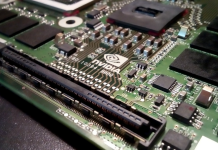The competition in the processor market has never been higher. With the increase in performance of mobile processors and the success Apple has achieved with its M-series Mac models, traditional manufacturers like Intel and AMD are compelled to adapt. Intel, recognizing this situation, is taking early steps to adjust. By optimizing its fabs for ARM chip production, the company is opening new opportunities in the global supply chain. Here are the details…
Intel Optimizes Fabs for ARM Chip Production, Opening New Possibilities for Global Supply Chain
Intel and ARM announced an agreement that will optimize Intel’s 18A fabrication process for use with ARM designs and intellectual property. While the deal doesn’t involve “Intel Foundry Services” division producing chipsets for ARM, it will significantly simplify the process for ARM licensees, such as Qualcomm and MediaTek, to commission Intel for future chip production.

Initially, the partnership will concentrate on optimizing Intel’s 18A process for mobile system-on-a-chip (SoC) designs. However, both companies anticipate that the collaboration could expand to encompass silicon designed for the automotive industry, Internet of Things (IoT) devices, and data centers. Additionally, Intel will extend its support to ARM licensees beyond wafer production, offering services related to packaging, software, and chiplets.
This comprehensive support highlights Intel’s vision to become a one-stop solution for ARM-based chip manufacturing. Intel has also emphasized the geopolitical implications of the agreement. By optimizing its fabs for ARM chip production, the company aims to create a more balanced global supply chain for foundry customers working on mobile SoC designs with ARM-based CPU cores. As of July last year, Taiwan Semiconductor Manufacturing Company (TSMC) was responsible for manufacturing nearly 70% of all critical chipsets used in modern smartphones, as reported by Counterpoint Research.
The recent military exercises by China, involving the encirclement of Taiwan, have raised concerns over potential conflicts on the island and the stability of the semiconductor supply chain. By collaborating with ARM, Intel is positioning itself as a viable alternative to TSMC, offering a more geographically diverse and secure chip production option for ARM licensees. This partnership is expected to have far-reaching effects on the global chipmaking landscape, potentially alleviating supply chain bottlenecks and fostering a more competitive market.
RELATED:
- Best Smart Lights in 2023 – Philips, TP-Link, Govee & More
- Redmi Note 12 Turbo Hands-on & Quick Review: That Redmi Is Back!
- Nvidia unveils GeForce RTX 4070 GPU, Up to 1.7x faster than…
- Beelink EQ12 mini-PC powered by Intel Alder Lake-N processor unveiled starting at $239
- Lenovo 14-inch Intel Raptor Lake-P powered Slim 7i ultrabooks hit store shelves
(via)







